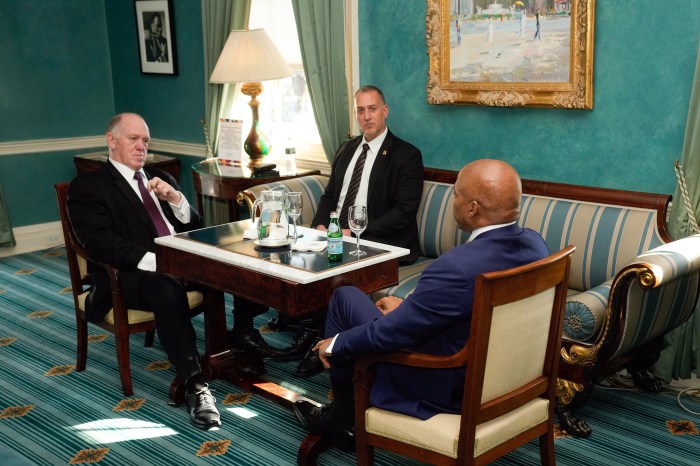
A contingent of Pride March participants is challenging some of the changes made to this year’s event, claiming organizers have not been open to feedback from the LGBTQ community.
The Reclaim Pride Coalition (RPC), made up of a number of activist groups and individuals who marched together in 2017 as a Trump administration resistance group, issued a list of demands to the march organizers, Heritage of Pride, and the NYPD in April, most of which have not been met, according to RPC member Natalie James.
“We’ve been asking for months for transparency,” James said of the organizers’ decision-making process.
Among the issues raised by RPC is a brand-new march route, which Heritage of Pride and the NYPD said is needed to speed up lengthy procession times and resolves neighborhood complaints while simultaneously preparing for what is expected to be record-breaking crowds for the march’s 50th anniversary in 2019.
“The NYPD continues to work closely with NYC Pride to ensure a safe and successful march,” a spokeswoman for the department said. “As a result of this partnership with event organizers, the route of this year’s march has been changed to accommodate the anticipated record number of attendees and reduce wait times for the more than 350 marching groups.”
James and the rest of RPC, however, argued the route is significantly smaller and barely moves through the West Village, which is considered to be the birthplace of the modern-day LGBTQ rights movement.
“It’s absolutely tiny procession in comparison,” James said.
While the new route does bring marchers past the Stonewall Inn – the site of the 1969 Stonewall riots – it then loops back north and ends on Fifth Avenue at 29th Street, just south of Koreatown.
RPC member Jake Tolan said the group was aware of a “small number” of complaints over the last two years, but questioned why organizers agreed to move it without much pushback.
“RPC would like to know why such a small percentage of residents were able to vanquish the LGBTQ community from the traditionally LGBTQ-friendly West Village…” he said.
RPC also objected to new size limits on participating groups and NYPD security barricades, and demanded that LGBTQ police marching in the parade should not be allowed to wear their uniforms or carry weapons. RPC said the request was made out of respect for members of the LGBTQ community, especially transgender people and people of color, who do not feel safe around law enforcement.
“This event commemorates a riot against police brutality,” James added. “For police to be given a place of honor in this march is very perverse. It has a very deep impact emotionally on the most vulnerable people in our community.”
Heritage of Pride appeared not to budge with regard to the demand in a response it issued in May, citing the free speech-nature of the march.
“It is also important to note that [Gay Officers Action League] had to sue in federal court to secure their right to wear their uniforms, and receive all the honors bestowed on other Department fraternal organizations that participate in parades and marches,” Heritage of Pride said in the statement. “That is a touchpoint in the movement, and Heritage of Pride holds that in a place of respect.”
While Heritage of Pride has defended most of its decisions in the face of backlash, it did grant the RPC’s demand to march as a “Resistance Contingent of political activists” in this year’s event.
With Pride Month in full swing and Pride Week quickly approaching, RPC members have stepped up their attempts to make their demands heard, hoping that more community input will force Heritage of Pride to reconsider.
“There was no one from the community that got to have input on how these decisions were made,” James said.
It was a packed house at the NYC LGBT Center on Tuesday as members of RPC joined other community stakeholders for a town hall meeting with Heritage of Pride as well as members of the NYPD and the mayor’s office.
“One thing that really struck me was the electricity in the room,” James said, but added that the meeting ended up having little to do with opening up meaningful discourse on the issues. “[It] was more of an announcement of what the decisions had been and some degree of explanation, but it wasn’t really a dialogue.”
Despite her disappointment with the meeting, James said RPC plans to continue meeting every Saturday afternoon until the march on June 24, and they don’t plan on disappearing after Pride Month either.
“We are not going to disband after June 24. We have our eyes on next year’s march,” she said. “We are very concerned how they’re going to handle this very important anniversary event.”





































